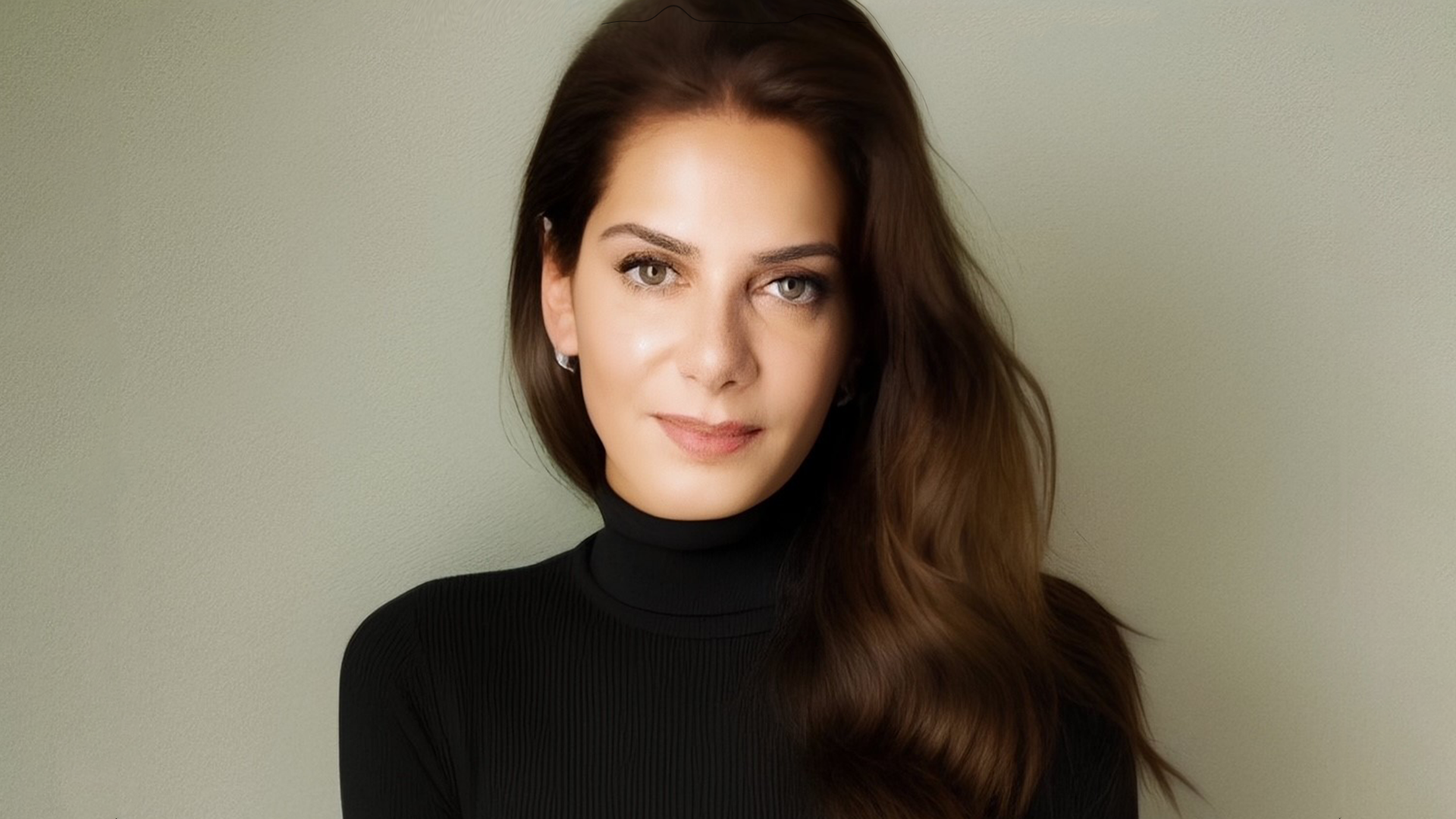Massimiliano Pogliani, CEO of Vertu shares his vision for the future of the luxury mobile phone manufacturer.

Massimiliano Pogliani, CEO of Vertu shares his vision for the future of the luxury mobile phone manufacturer.
Massimiliano Pogliani, CEO of Vertu shares his vision for the future of the luxury mobile phone manufacturer.
Widely credited as the man responsible for transforming Nestle’s Nespresso brand into the modish star it is today, Massimiliano Pogliani knows a thing or two about evoking a sense of luxury.
In his time at that company, Pogliani catapulted the coffee brand from mass-market, run-of-the-mill obscurity, to an iconic empire representing the finer things in life, with a slick customer experience to match.
Now, as CEO of luxury mobile provider Vertu – known for its opulent handsets priced at up to €16,900 a pop – Pogliani has decidedly moved into a whole other echelon, but the visionary in him which revolutionised Nespresso remains intact.
Pogliani made the move to Vertu in 2012, assuming the post of CMO in November, before quickly taking up the top seat as CEO in June the following year.
Since his appointment to the helm, Pogliani has steadily made his mark on the company, reviewing and refining its product offer over the last two years to introduce new models, as well as an expanding into writing instruments and small leather goods, and, most recently – adding an ecommerce site for the business.
But, speaking candidly to Luxury Society, Pogliani says he sees even greater things on the horizon for the brand.
“There are many opportunities for Vertu over the coming years, from the development of new products to growing sales share in specifics markets,” he says.
However, he remains acutely aware of the brand’s positioning in the market and the need to grow without sacrificing the air of luxury the company has worked to build.
“Our main challenge over the next few years could be one of scale as we tread the right path between the growth of the business and rising product volumes against the need to continually offer an authentic luxury experience,” he admits.
Here, he speaks exclusively to Luxury Society about how he plans to navigate the waters and what’s in store for Vertu’s future.
“ Vertu has sold around 400,000 products over the last decade ”
Tell us about Vertu in 2015 – what are the key products? How many are being manufactured?
At Vertu, we remain focused on our core competence; luxury phones. Our current range is made up of three distinct models: Signature, Signature Touch and Aster. Each model is handmade at our English headquarters just outside of London and all offer our customers a blend of leading performance, fine materials and craftsmanship, and a suite of curated services and VIP access.
Signature is our icon, the voice centric phone with which we launched the company fifteen years ago and that still commands 25-30 percent of our overall sales volume today. Signature Touch is a powerful smartphone, with a masculine, formal aesthetic that mirrors its voice centric namesake. Conversely, Aster was designed for Vertu customers that prefer a more contemporary, unisex and vibrant style.
As with many other luxury brands, we tend not to discuss numbers at Vertu. To do so is to draw comparisons with the mobile mass market and this is not our business. To give this some context, last year, global mainstream smartphone sales topped 1 billion. By comparison, Vertu has sold around 400,000 products over the last decade. It is like comparing Bentley to Volkswagen; both are fine products but they are aimed at entirely different consumers and are designed to offer different things.
At Vertu, as with any authentic luxury brand, to a certain extent production is limited by the scarcity of the materials that are used, coupled with the complexity and time required to use them properly. There are also limitations imposed by a service proposition that is based on very high levels of customer care and attention. All in all, it is an entirely different proposition to making anything by the million, to a cost.
“ We have seen an upswing in most markets, particularly mainland China, the Middle East and Europe ”
Where is the brand experiencing the most substantial growth?
In many respects, the growth that we have seen at Vertu over the last two years has been global, driven by an increasing consumer interest in the luxury tech category. This is new territory for most brands but not for Vertu; this is where we have made our name over the last 15 years, before anyone considered that mobile phones or software could have a luxury aesthetic.
Consequently, we have seen an upswing in most markets, particularly those where Vertu has strong brand awareness, such as mainland China, the Middle East and Europe and further opportunities remain for Vertu in these regions as the luxury tech market continues to grow.
However, we are also seeing more than 50 per cent of our online sales come via the USA, which in the past has been a relatively small market for Vertu. The US remains the world’s largest luxury so this growing engagement amongst consumers there is exciting to see.
Ultimately though, Vertu’s customer base, both existing and new to the brand, is made up of global citizens, individuals that are moving frequently between cities and territories. So we tend to think of consumer types rather than specific geographies.

Vertu Signature Touch
You’ve said before that Vertu isn’t necessarily a competitor to other mobile phone providers. What do you see as Vertu’s brand/value proposition today?
Vertu’s proposition is based on products offering a blend of modern technology, craftsmanship and materials, and a suite of curated services. Around this sits a significantly elevated consumer experience that starts with our on-line ecommerce site and that runs through our retail presence, including our exclusive Boutiques, and through to dedicated Vertu after care. Whilst we keep pace with mass-market technology, design, the ability to personalize and the authentic luxury materials used are some of the key product attributes that appeal to our customers.
So, in terms of Vertu’s competitive set, it tends to be other luxury goods and experiences, rather than other phones.
The sensibilities of the luxury market are such that logic arguments are diminished when choosing goods. While rational aspects still remain in some areas – the technology in a Vertu must be understood to be cutting edge, for example – it is not about that aspect alone. The tactility, the style, the rarity all play significant roles in driving what is an emotionally led purchase.
“ We appreciate that luxury purchases are emotionally driven and that they centre on the experience and associated feelings ”
With wearables gaining pace, there has been a big conversation about the timelessness of consumer electronics, and therefore, their validity as a luxury product. How do you manage this tension at Vertu?
This is a fascinating area of debate and obviously one in which Vertu has some strong opinions. It might be worth considering our own 15 years of operation – a considerable amount of time in pure technology circles – as going some way to validating the overall concept. This is perhaps why Vertu was so widely referenced when high-end smartwatches featured in the news earlier this year.
We appreciate that luxury purchases are emotionally driven and that they centre on the experience and associated feelings. Luxury, it could be argued, is less about what ‘it’ does and more about how ‘it’ does it and in turn, how that makes the individual feel.
To dismiss luxury tech is to dismiss the human appreciation for a differentiated styles, tactility or even smell and to assume that software or chipsets are the only measure.
“ Despite the onset of increasingly greater technology, there is yet to be an algorithm that can better a human for delivering a tailored Concierge service ”
Was this part of your decision to launch your Concierge Service?
Since we launched in the late 90s, services and principally Concierge services, have been a fundamental part of the customer offer, alongside the finest materials, handcraftsmanship, design and technology.
As both the luxury and technology industries have changed over the last 15 years, Vertu has refined this aspect of the brand; technology changes and the advent of the modern smartphone mean that we can communicate directly with our customers in real time, allowing us to deliver a discreet and highly personalised service with the customer at the heart of all we do. The human element remains fundamental throughout.
Despite the onset of increasingly greater technology, there is yet to be an algorithm that can better a human for delivering a tailored Concierge service and at Vertu, we pride ourselves on the close relationship that many of our services team build directly with our customers.
This aspect is very difficult so scale up and once you go beyond a certain volume, it is almost impossible to deliver in a meaningful way.

Handmade: Vertu Signature Touch workshop
Despite your connected DNA, Vertu has also launched writing instruments and small leather goods. Will we see more ‘traditional’ luxury products from the brand?
Over the past couple of years we have reviewed and refined our product offer to focus primarily on our range of phones, leather goods for our phones and relevant personal audio devices – essentially our core areas of expertise.
“ Our customers have become increasingly nomadic, with the advent of the internet and social media, so marketing has become global ”
The wealthy are unprecedentedly nomadic these days. How do you capture the attention of such global consumers?
Whilst our customers have become increasingly nomadic, with the advent of the internet and social media, marketing has become global so we cover all of the relevant channels for our consumer base, targeting our activity to the media which appeals to our current and potential customers.
The overarching strategy is designed to deliver and intimate relationship with our customer base. As a luxury brand, we are naturally talking to a relatively small number of people worldwide, so the marketing approach is tailored for this. Public relations and events are important areas for us, anything where can create tailored communications and experiences that are highly targeted.
“ Around 80 per cent of the customers that we see in-store have engaged with Vertu.com prior to their visit ”
Vertu launched e-commerce in November 2014. How have you managed this integration and how has the consumer responded?
The entire Vertu headquarters is based under one roof, in Church Crookham, Hampshire; R&D;, Sales, Marketing and our factory. However, across the globe we have a network of stores and key regional marketing and operational hubs. Every part of the business is linked by one EPOS and CRM system.
This makes communication between teams highly efficient. Add to that, we have fantastic in-house data, logistics and shipping teams and we are well equipped to ensure we can anticipate and deliver against demand.
Today’s consumer experience starts for most online and Vertu is pioneering this channel in the luxury space.
We have an online configurator, so that customers can play with designs, personalisation, engraving and the like, wherever they are. We are then continually refining how this on-line engagement links with our Boutique experience, so that the customer has one effortless journey.
Around 80 per cent of the customers that we see in-store have engaged with Vertu.com prior to their visit. Ultimately, the in-store Boutique experience remains the purest brand expression in the luxury industry so we still look to move consumers in to our physical environments.

Vertu.com
What role do you believe e-commerce will play in your future distribution mix (vs. physical retail, wholesale)?
Our e-commerce site complements our store network. We are unlikely to ever have a store in every city, consequently e-commerce allows customers who have experienced products in-store to consider and purchase at their convenience.
At the same time, it allows customers the opportunity to compare products and make material and personalisation choices before purchasing.
With so many channels available to promote your products, what does your marketing mix look like today?
Most good luxury brands now have an omni-channel approach to marketing and this is particularly relevant to Vertu, as our customer base is very mobile, travelling often and interacting with their preferred brands across a variety of touch points. We need to be everywhere, offering effortless access to Vertu and a seamless customer experience.
This cross channel approach is obviously tailored to for a luxury brand and as mentioned, this is designed to build close relationships with a relatively small consumer base spread around the world. Consequently there is no TV or radio advertising and there might be print titles within our media buy that have very small circulations but that reach exactly the right demographic for Vertu.
Given our desire to establish close relationships, retail remains our most important touch point, as it is where the human relationship with Vertu begins and we see many customers visiting and interacting with our Boutique teams around the world as they travel from region to region.
“ Luxury has moved more towards understatement and connoisseurship, with customers increasingly interested in the mechanics, designs & craft ”
How are you working to engage the next generation of luxury consumers?
There are several elements to consider when answering this question. The ‘new generation’ of luxury consumers are digital and technology natives, so expectations around these areas differ from those of older, more traditional luxury consumers. This requires us to maintain a keen eye not only on the technological components of our products but also in our marketing and retail approaches and the ever changing impact and role of social media, for example.
Luxury has also moved more towards understatement and connoisseurship, with customers increasingly interested in the mechanics, designs and craft that go into the goods that they buy, alongside a subtler overall style. This move is particularly visible in younger luxury buyers.
There is also an increasing expectation that we will be able to tailor and personalise every aspect of our lives, even in the mass consumer goods market. This has a knock-on effect for luxury brands where this expectation increases significantly.
In the last 12-months, we have seen greater demand for personalisation in the mobile market. Consequently we have developed a range of products finished in different materials and colours, with further ability to differentiate with engravings, monograms and metal finishes.
“ Over the last two years we have structured our business in such a way as to be agile when change is required ”
Under your leadership, Vertu has undergone changes to operating system, branding and even ownership. What are the next steps for the brand?
There are many opportunities for Vertu over the coming years, from the development of new products to growing sales share in specifics markets.
Of course, we remain conscious that there are a number of challenges facing the luxury market and that many of these are not necessarily short term.
However, over the last two years we have structured our business in such a way as to be agile when change is required. This coupled with the global nature of our sales means that we are able to weather the current downturn being experienced in certain markets while building market share elsewhere.
Our focus remains on our core expertise – luxury mobile phones – although we always keenly follow the developments in wearable technology, assessing the relevance to the luxury market.
I want to maintain the growing momentum that has been built around the Vertu brand during the last few years.

What is the biggest challenge that Vertu will face in the coming years?
There are many challenges in what we do at Vertu, not least the continuing balancing of two opposing worlds; luxury and technology, where the relatively slow, considered pace of the luxury industry is at odds with the ever increasing rates of change and development within the technology sector.
However, our main challenge over the next few years could be one of scale as we tread the right path between the growth of the business and rising product volumes against the need to continually offer an authentic luxury experience, whereby the materials, craftsmanship and high level of service doesn’t necessarily scale up to the same extent.
“ Brand health and customer satisfaction results measured over the last 18 months have been very positive ”
And how will you measure success?
I am fortunate to be able to spend time with many of our customers and VIP owners and I am grateful that they are quick to let me know when Vertu gets it wrong, as well as when we get it right.
We also run several customer panels and research and luxury industry insights play a significant role within our marketing and business operations. Brand health and customer satisfaction results measured over the last 18 months have been very positive and in some key regions reached their highest levels ever.
These are very encouraging results and point to us being well placed across our product offer, marketing approach and sales and service. Nonetheless, we continue to develop and innovate for the benefit of the customer experience.
Ultimately, success is measured by commercial success.
For more in our series of conversations with Luxury Leaders, please see our most recent editions as follows:
– In Conversation With Edie Rodriguez, CEO, Crystal Cruises
– In Conversation With Sascha Moeri, CEO, Carl F. Bucherer
– In Conversation With Philippe Léopold-Metzger, CEO, Piaget










